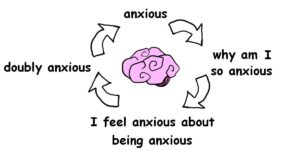Is it possible to start a conversation with anyone?
Yes!
I don’t say this lightly.
I’ve suffered from decades of social anxiety. And despite that, I’ve spoken with thousands of strangers — from all walks of life and from different cultures and countries.
I still chat up anyone I find interesting on a daily basis. Unlike experts who write a book or two and call it a day — nothing wrong with that, of course — I practice what I preach.
Based on experience and research, here are the best tips to start a conversation in any social situation, even if you’re shy and awkward like I was years back:
Understand what’s stopping you from starting conversations
Gillian Sandstrom, a social science researcher, investigated the following fears of talking to strangers:
- Fears of not enjoying the conversation
- Not liking one’s partner
- Lacking conversational skills
- Fears of the partner not enjoying the conversation
- Not liking oneself
- Lacking conversational skills
What she found in her study was that “people’s fears are overblown”. And I can certainly attest to that: I had all of these fears and still I managed to have delightful conversations with people I just met.
I will share why that’s the case later, but could you relate to any of the fears above? If you have other fears not covered on the list, write them down on paper and we will address them later.
Your thoughts and emotions are not reality
One of the most profound insights I learned from multiple mindfulness courses, — including Power of Awareness, a seven-week program taught by clinical psychologists Jack Kornfield and Tara Brach — is that our thoughts and emotions aren’t all true. OK, this is starting to sound like some bullshit from The Secret, so let me explain…
First, our mind produces over six thousand thoughts every single day. Do you really believe that all of your thoughts are always, 100% true no matter what? Probably not. And neuroscience backs it up: our brain is a 24/7 thought production machine — this is known as the default mode network. Tara Brach explains:
“Our mind secretes thoughts like our body secretes enzymes. Part of our evolutionary design is to be thinking a lot… [and] it’s an incessant dialogue. And it really involves all of our concerns about ourselves– what’s happening to me, what I’m worried about, how others are treating me, what I need to get done.”
And because we are biologically wired to notice any potential danger or threat, it’s understandable then that we prioritize anxiety-driven thoughts like “if I walk up to them, will they think I’m creepy or weird?” With this in consideration, here’s how you can start working through your social fears…
Accept your social anxiety/awkwardness
“The curious paradox is that when I accept myself just as I am,
then I change.”
— Carl Rogers, psychologist
Accepting your anxiety might feel strange at first: does that mean you give up on improving your situation? Quite the contrary. Acceptance is the first step to becoming socially confident, as you stop judging yourself for whatever you feel. This is fundamentally important, as judging yourself — criticizing yourself, beating yourself up — makes your anxiety a lot worse, and keeps you trapped in a cycle of self-hatred.

Credit: Rob Liu
Of course, acceptance is much easier said than done, and it really is a lifelong journey. Here’s one thing that could help: see your social anxiety or shyness as a good thing, or at least a reminder of your interest in people. What do I mean by that? You’re anxious because you care. As Dipali Bharadwaj, a clinical psychologist, said:
“Anxiety rarely shows up in any situation where something isn’t at stake. In other words, if you didn’t care about what was going on, you wouldn’t be anxious.”
You can be nervous AND still talk with people
There’s a common story that people tell themselves, which stops them from ever talking with people they’re interested in. It comes in many flavors, here are a few examples:
- “I’m nervous right now… I will talk with them on another day”
- “When I’m less anxious, then I will talk with strangers…”
- “If I want to talk with strangers, I need to be a lot more confident”
These inner stories are understandable, but here’s the problem with them: They are very much limiting, black-or-white narratives. What I’ve learned — thanks to my therapist Sean Swaby — is that we can tell a better story. How?
Rather than the rigid story of “either this or that”, change the story to a more flexible one: “this and that…” Specifically, you can have your mind racing and still manage to talk with people. You can have sweaty palms and carry a fun conversation. You can think that you’re not confident enough and make new friends.
Stephen C. Hayes, the founder of Acceptance Commitment Therapy and author of A Liberated Mind, also shares two ways to take action despite your difficult emotions:
- “(I don’t want to, don’t feel like it, but) I choose to…”
- “I’m feeling/thinking this… and I choose to…”
Related article: How to keep a conversation going when you’re anxious
Social confidence is learnable
When it comes to confidence in social situations, this is one of the biggest myths… either you’re a “people person” or you are not.
The reality? While it might not be able to eliminate your social anxiety completely — it just isn’t realistic — you can learn the key skills that make someone a social pro. I use the word “pro” because social confidence is a result of learning and mastering multiple social skills. I know this firsthand because I’ve learned how to be a social person over the years.
In fact, a few social skills are a lot more important and impactful than others. For example, making small talk and asking relevant questions (there’s a reason why I’m not emphasizing “deep” or “creative” questions…)
Practice small talk… even if you hate it
Asking about the weather is better than asking nothing. What do I mean? It’s easy to get caught up in the idea of “oh I’m gonna have a meaningful conversation” and dismiss small talk as boring or shallow.
While small talk can be uninspiring, it’s actually how you build trust to discuss deeper topics. It’s the social version of foreplay before sex, if you may… Anyway, a study also reveals that small talk — even if it’s just a few minutes — helps you gauge someone’s personality, leading to better conversations with them. (At the very least, small talk makes you happy!)
Related article: Conversation starters with new friends, or people you just met
Ask “bad” questions
When it comes to talking with people — especially new friends — another common blocker that I’ve heard is “I’m worried about asking a stupid/bad question”. That’s probably why there are so many articles and resources on conversation questions.
The problem is, the over-focus on asking great questions either increases your anxiety or makes conversations awkward. Just think about it: if a stranger or acquaintance walks up to you and asks a difficult question, you would most likely be caught off guard. As HBR professors Alison Wood Brooks and Leslie K. John commented:
“If the goal is to build relationships, the opposite approach—opening with less sensitive questions and escalating slowly—seems to be most effective.”
To start a conversation, you don’t need creative or profound questions. You just need to ask. ANY question will do. Why? The act of asking a question is enough to get someone to pay attention to you right away, as Fast Company reports:
“Questions trigger a mental reflex known as “instinctive elaboration.” When a question is posed, it takes over the brain’s thought process. And when your brain is thinking about the answer to a question, it can’t contemplate anything else.”
In my experience, the easiest type of question is one that’s related to your surroundings. It sounds natural and isn’t intrusive i.e. doesn’t require them to share personal details. For example, if you’re at a cafe, talking about coffee with the person lining up behind you isn’t unusual. Which leads to my next point…
Start with familiar strangers
If you want to get better at social skills, familiar strangers would be your best “test audience”.
Who are they? People who you see regularly, but aren’t yet your friends. These people can be easier to talk with since you’re leveraging the mere exposure effect: your familiar presence makes them more receptive to chatting.
Here’s a list of “familiar strangers” you are most likely to bump into (linked to specific conversation strategies):
- Your colleagues
- Coworking space members
- Your neighbors
- Fellow gym members, or fellow park-goers
- Other regulars at your favorite cafe/restaurant/grocery store/bookstore
- Baristas, waiters, bartenders, store clerks, and owners (they are usually friendlier, given the nature of their work)
- Other students on campus
Prioritize “social hotspots”
Not all places are made equal. In certain places, people are much more likely to be friendly — they might even be there just to socialize with others. That dramatically increases your odds of conversation success without you having to do anything. How’s that for a magic bullet? 😉
Here’s a list of common “social hotspots”:
- Conferences and networking events
- Coworking spaces
- Fitness venues like parks and gyms
- Social & recreational clubs, such as book clubs
- Places of worship e.g. churches
- Parties! For example, weddings, birthday parties, Christmas celebrations, family gatherings
Learn how to keep the conversation going
Starting the conversation is half the work. To keep a conversation going, here are 25 useful phrases. Also, here’s a list of common conversational challenges and corresponding strategies:
- How to keep a conversation going when you’re anxious
- How to keep a conversation going without asking too many questions
- How to keep a conversation going when you don’t know what to say
- How to keep a conversation going when you have nothing in common
- How to keep the conversation going with someone who isn’t listening
- How to keep a conversation going with people you don’t like
- How to keep a conversation going when it’s too noisy
It’s also helpful to adapt your communication approach to the other party’s personality and background:
- How to keep a conversation going with an introvert
- How to keep a conversation going with an extrovert
- How to keep the conversation going with people more successful than you
- How to keep the conversation going with someone older or more experienced
“Download” a mental map of great questions
As you become more comfortable with starting conversations and asking questions, it’s helpful to have an idea of what great questions sound like. A great question often has the following elements:
- Relevant: It builds on what the other person was saying, which makes them feel respected.
- Open-ended: It can’t be answered with yes/ no, as it requires them to dig deeper or think differently, which leads to my next point…
- Thought-provoking: It gets them to snap out of their old/habitual way of thinking, which can lead to new insights or perspectives.
I’ve brainstormed various lists of fun & deep questions — check them out here.

